Your Free Business Resource Guides
These free generic business guides and tools are relevant for Aesthetic Clinic owners. They provide succinct and actionable practical advice that can help you to grow your business…
Free Resources & Downloads…
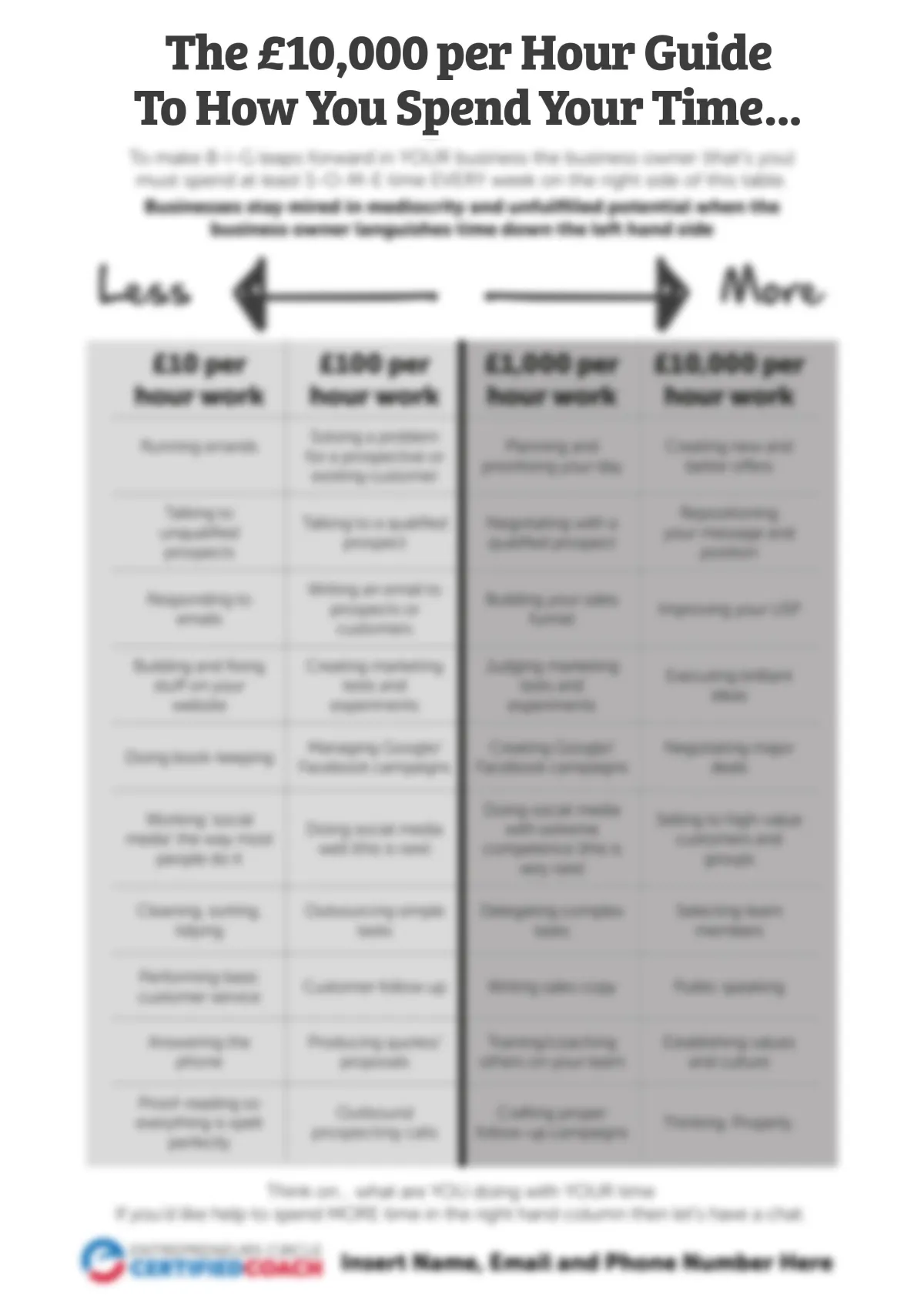
The £10,000 per Hour Guide To How You Spend Your Time
To make big leaps forwards in your aesthetic business you need to spend time working on the big ‘stuff’. This’ll help you…
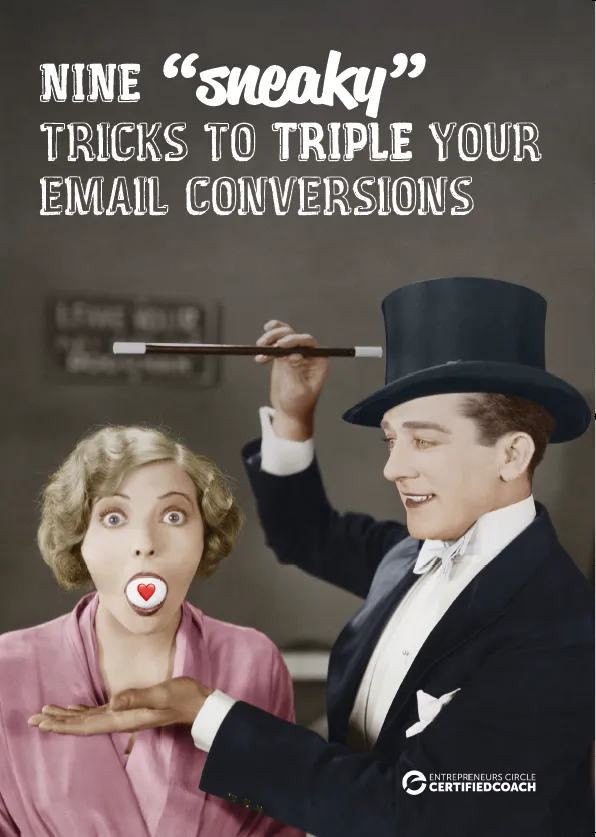
9 ‘Sneaky’ Tricks To Triple your Email Conversions
Email Marketing is still one of the most valuable marketing tools for clinic owners and this will help you get more sales from your emails.
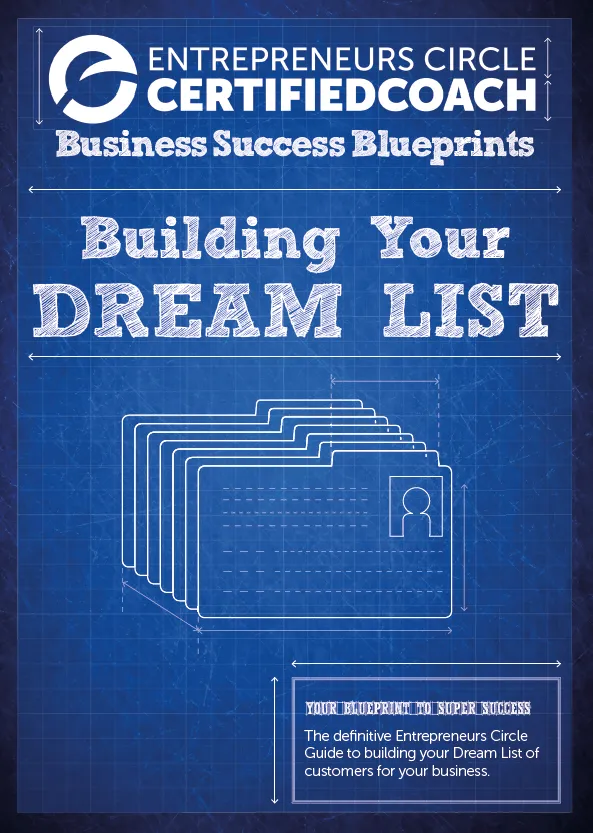
Building Your Dream List
There’s a real art to identifying and getting in front of your ideal aesthetic customers. This blueprint will help you get started…

Finding Your Customer Avatar
Marketing to the right people will save you a lot of wasted time and money. Find out who you should target with this workbook.
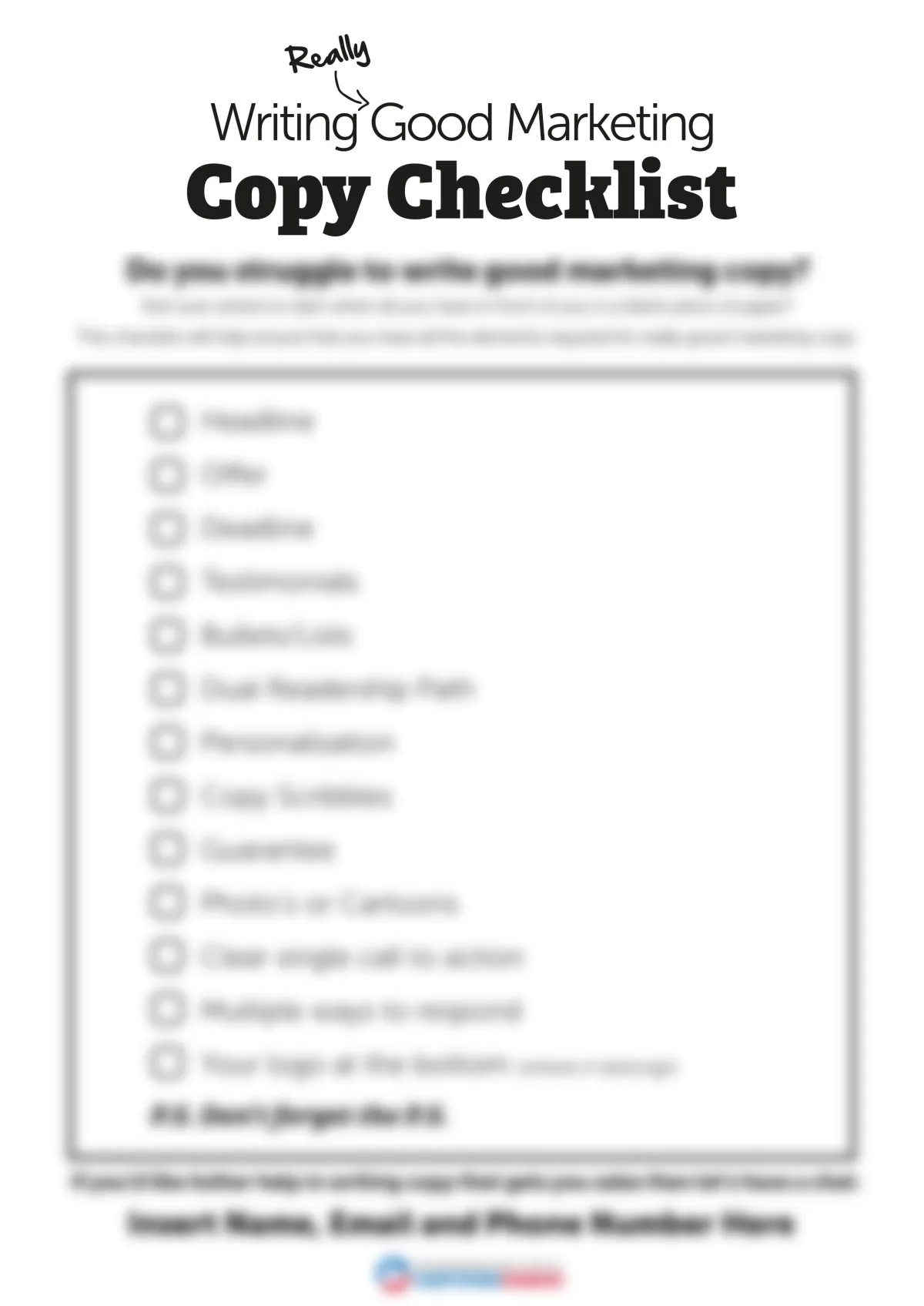
Copy Checklist
This checklist will help you to plan and write more compelling marketing copy.

Marketing Spend Calculator
Work out what you should be spending to market your aesthetic services to get a new customer.

Mindset Checklist
How you think is often more important than what you do. Here’s a checklist to test your mindset.
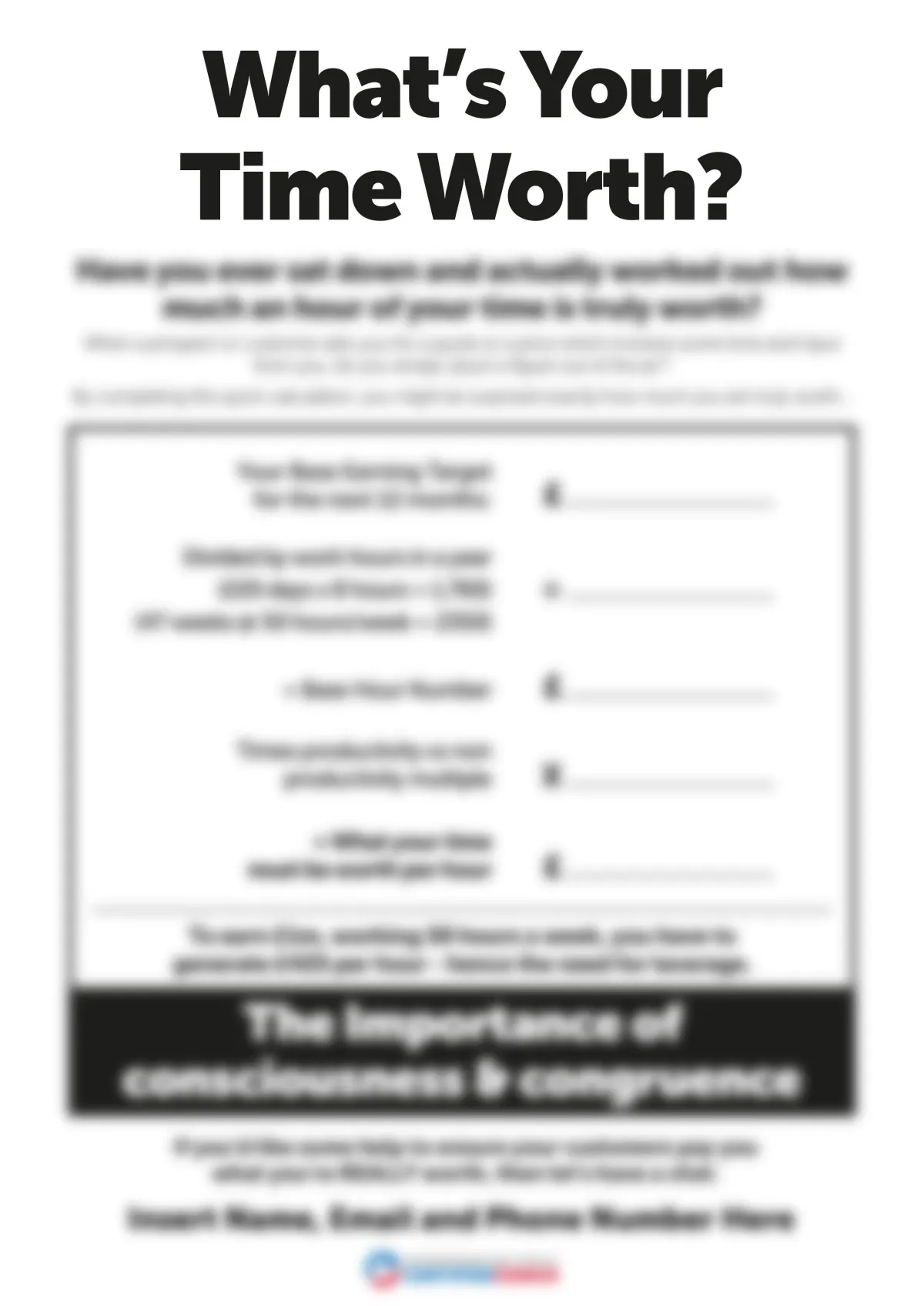
What’s Your Time Worth
Complete this quick calculation to find out how much your time is truly worth

Professional Business Person
Take the test to find out whether you are a Professional Business Person or a Wannabee?
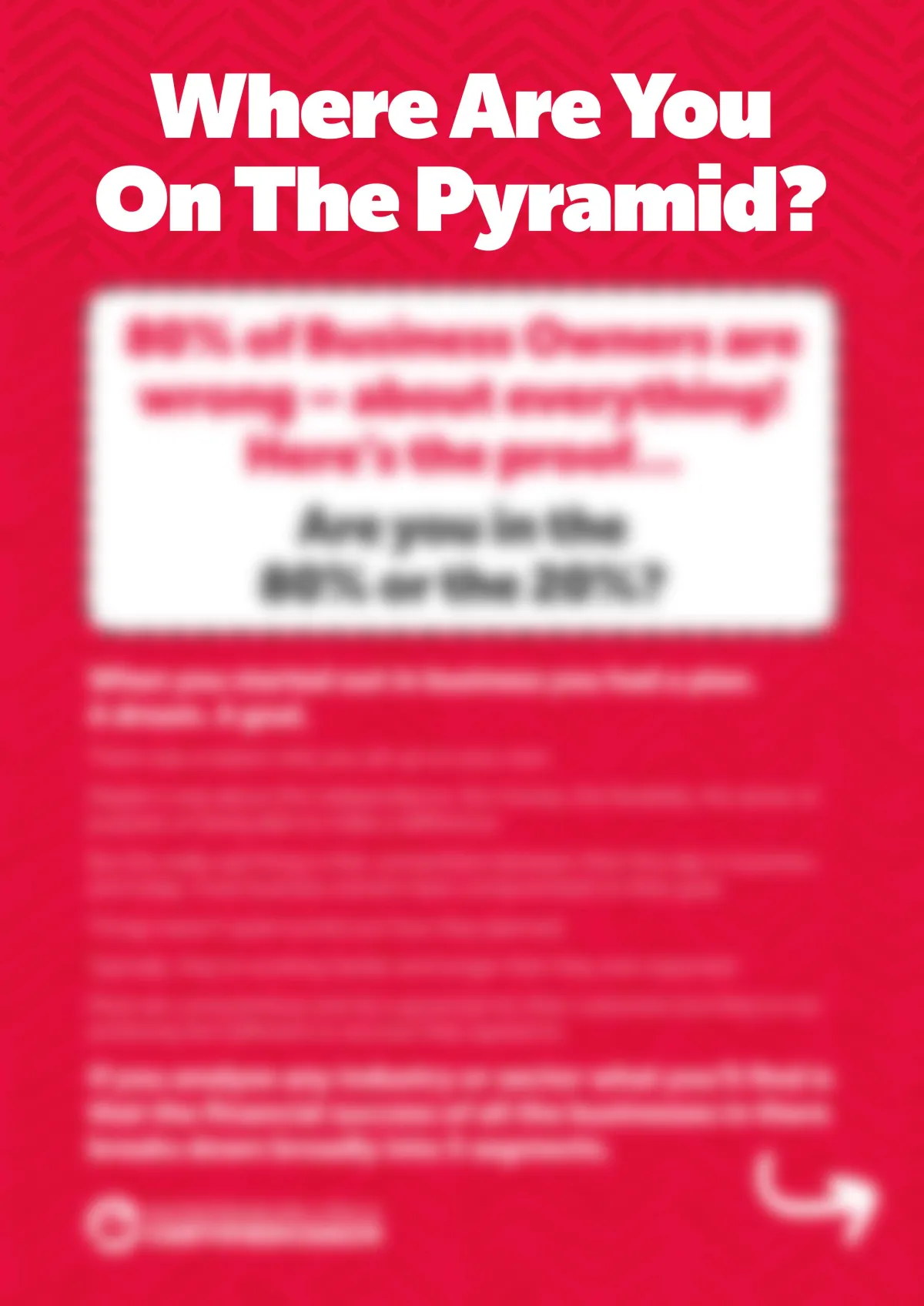
Where Are You On The Pyramid?
80% of Business Owners are wrong - about everything! Here’s the proof…
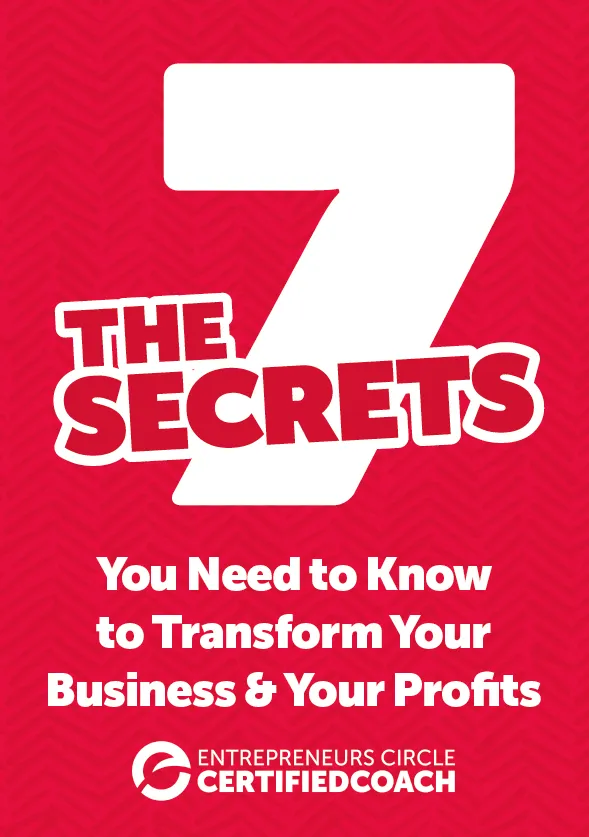
The 7 Secrets
This guide alone could transform your aesthetic business. Embrace and implement the 7 secrets to achieve a greater level of success.

LinkedIn Lead Generation
Are you using LinkedIn to connect with your target market? This Guide is full of proven strategies, tactics and scripts to help you generate quality leads through the LinkedIn platform.

A World Class Follow Up System
Don’t leave money on the table. Make sure you’re working the leads that you get.
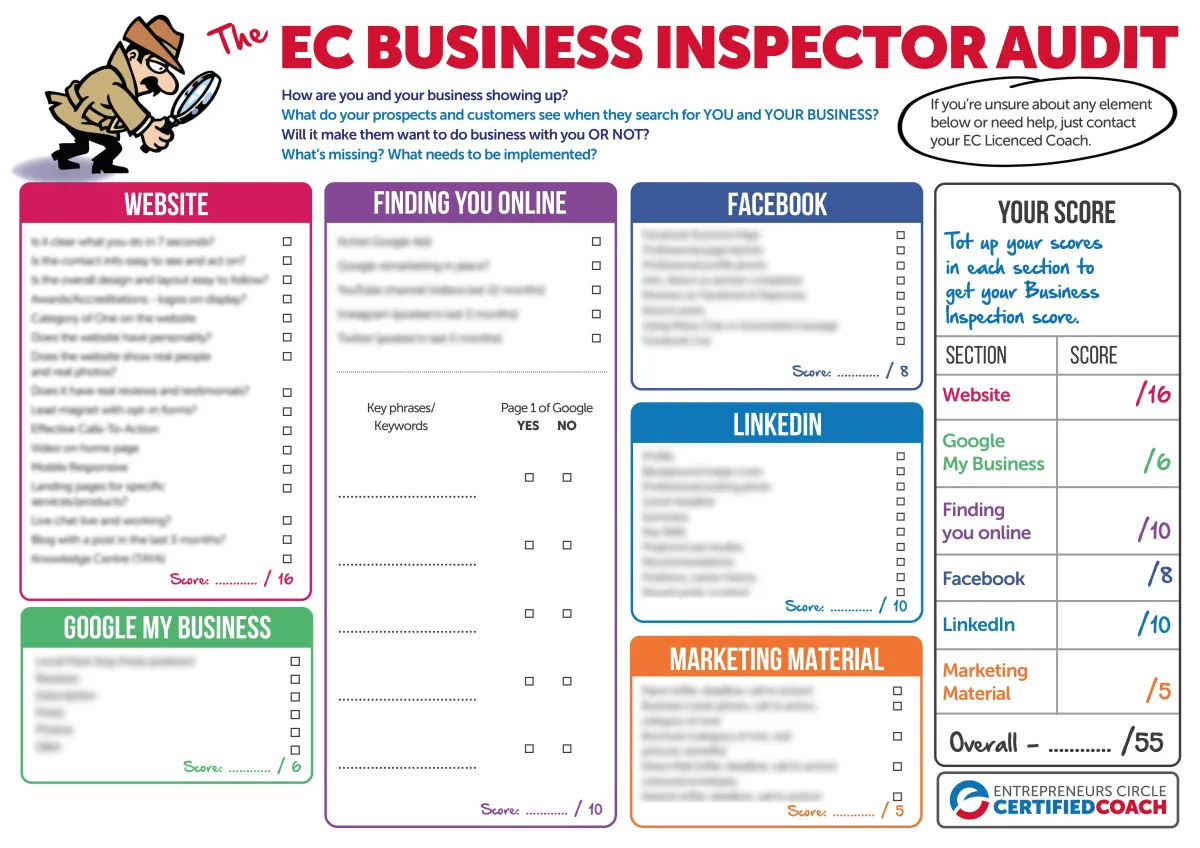
The Business Inspector Audit
What do your prospects and customers see when they search for you and your aesthetic business? Use this checklist to see how you score with Google, Facebook, LinkedIn, your marketing material, website and more…

Website Audit Checklist
How does your clinic website stack up? Use this checklist to understand how and where small improvements can help you to deliver big results with your website.

Wheel of Life
How happy are you with each element of your life? This’ll get you thinking and is worth spending 10 minutes to complete.
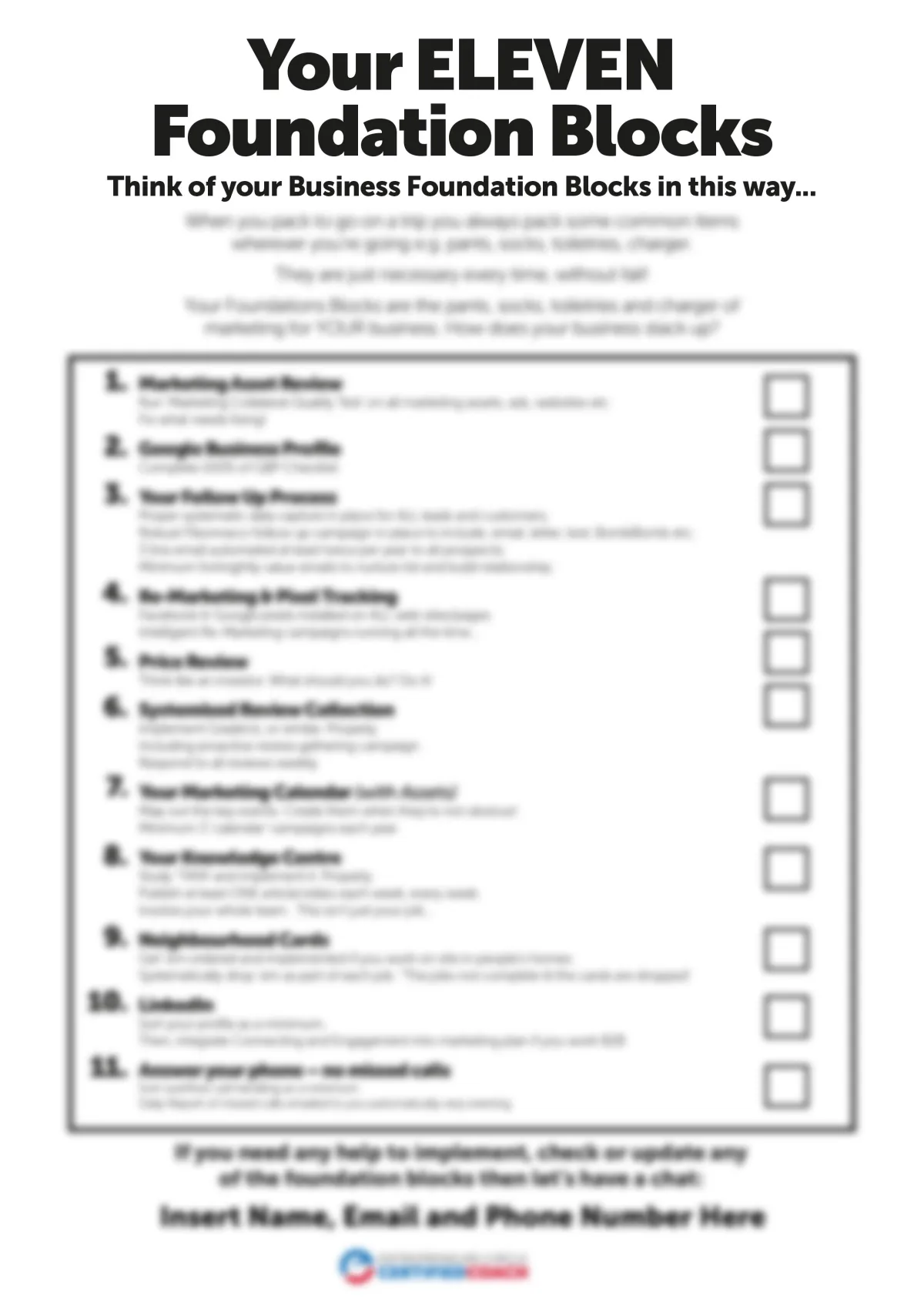
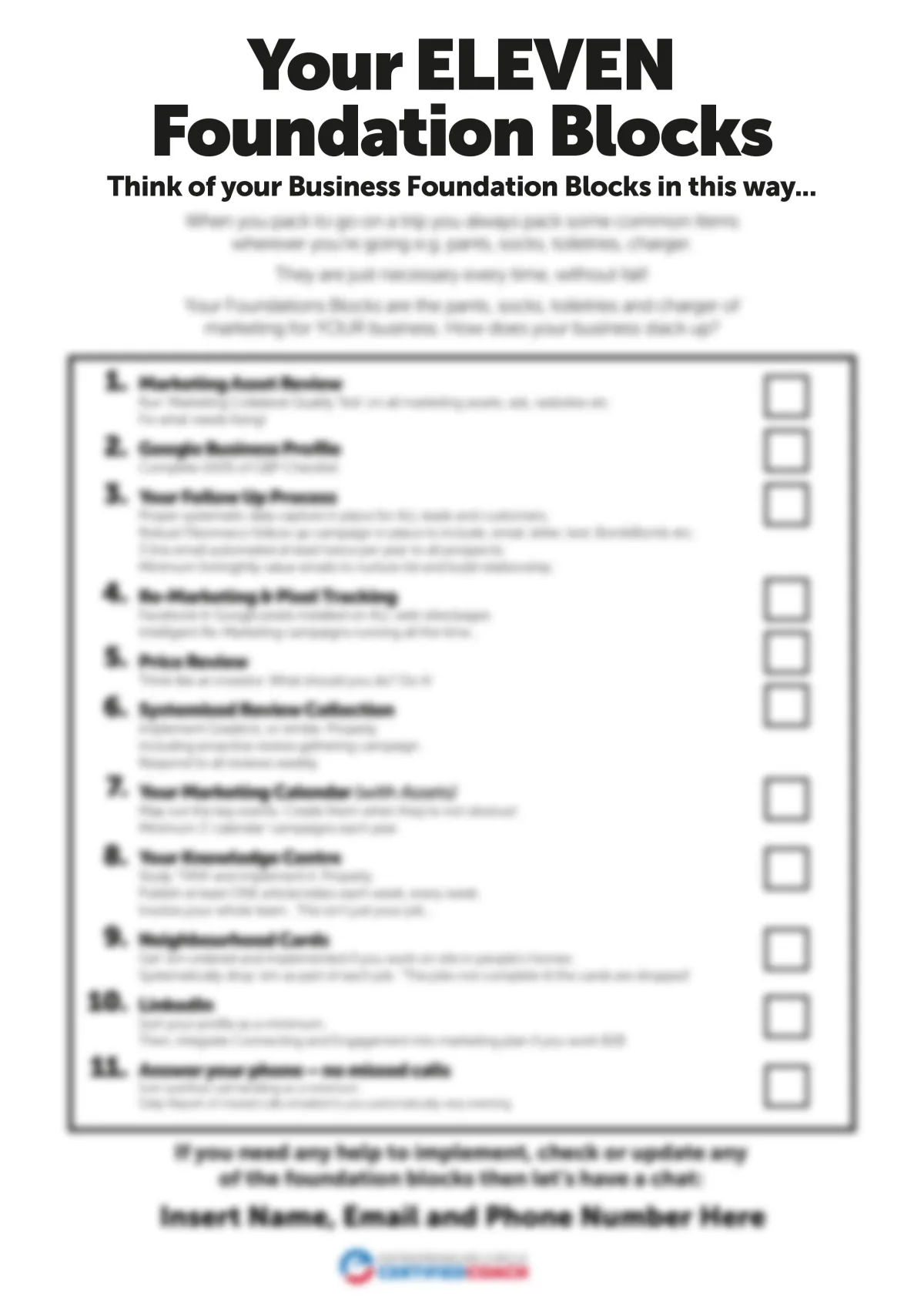
Your 11 Foundation Blocks
These are the things that all businesses need to have in place to be successful.
For more insights about running an aesthetic clinic, please see my Blog posts below

Aesthetic Business Coaches & Mentors; What’s the difference and can you access them with no financial risk?
“I have always been a huge believer in the inestimable value good mentoring can contribute to any nascent business." - Richard Branson
Since I was involved in the launch of Botox® in 1994, I have witnessed the evolution of the non-surgical aesthetic marketplace from the very first clinics to the multiple thousands that now operate in this sector.
It’s been a fascinating personal journey, as an entrepreneur, to have also been involved in the launch of educational models (FACE conference); 2 Aesthetic clinics; HydraFacial (as a distributor) and the Consulting Room membership & publishing model.
I love engaging with entrepreneurs of small businesses who, at heart, want to make a difference – and often have an iron will and capacity to get things done that most salaried employees do not.
However, reflecting on the last 28 years – it’s also interesting to note the difference between those small businesses owners who started back in the early days that are now multi-million turnover ventures, and the ones that failed.
From personal experience and working with some of the most successful people in our industry, I think that a major factor in speeding up (but not necessarily guaranteeing) success is to recognise where you need external help, advice, and support.
Now most of us will be familiar with contracting external accountants or paying for training courses.
Other support is often sought from marketing agencies – and although this can help drive new customers through in the short term, it can often be just a “sticking plaster” if your overall business foundations and marketing strategies are not solid and well thought through.
However, its often the minority that seek a more holistic 360 degree overview with strategic and tactical support from a trained business coach or mentor as the initial potential benefits can be less tangible.
So, what’s the difference between a coach and a mentor, and why should you consider engaging with one?
You will find many definitions online regarding the difference between a coach and a mentor, but ultimately, they are about helping people get to where they want to go in their business by leveraging the experience of the coach or mentor.
However, mentoring tends to be more directive where the mentor does most of the talking sharing their knowledge, skills, and experience, whilst a coach is likely to pose more questions giving the person they are coaching the space to reflect and do most of the talking.
Coaches generally will have been on some form of coaching course in their area of expertise (whereas mentors generally haven’t). Coaching is also much more structured around a specific programme, whereas mentoring is mainly development driven and looks to the mentee to decide what they wish to achieve and which goals they have for their mentoring relationships.
When people are seeking support from someone billing themselves as either a business coach or mentor specialising in the aesthetic arena, the key thing is to agree exactly what you need help with and to judge whether the individual has the experience and suitable personality to work with you.
Generally, in either situation, the coach or mentor will be providing guidance rather than the actions that need to be performed to move forward.
Where experienced coaches and mentors can make life-changing step changes in your business is by helping you to identify things that you can’t see. In addition, these relationships can offer other tangible results like reduced burnout rates, lower stress, and increased passion and resilience.
The most significant difference between coaches and mentors is that coaches are paid, and mentors (if you are lucky enough to find one) often volunteer.
While it may seem like an obvious choice to opt for free guidance, it’s essential to see how coaching and mentorship work together.
Many mentors offer support and guidance on what has worked for them in their entrepreneurial careers to help their mentees and may even make professional introductions to suitable contacts that can advance the mentee’s business.
While that’s immensely valuable for many entrepreneurs, the benefits can fall short without coaching.
Business Coaches working in the aesthetic arena are paid, highly trained professionals who have often run an aesthetic business themselves – although that isn’t strictly necessary.
The eventual success of a coaching relationship revolves around trust in the coach’s advice, and a desire and ability to implement recommendations that will move your business forward.
The idea of striking up a relationship with a coach is that you will be doing the right things in the right order for the right reason more often – which will speed up the process of growing your business.
However – with so much “business information” available online – many fear that they won’t get a real return on investing in a professional aesthetic coach and feel that they can just wade through everything that’s available in books, on videos and at business events at a much lower cost and grow their business without external support.
Although most entrepreneurs would like the support, wisdom and advice from someone who has achieved what they also want to achieve, many do not engage with a business coach as they are unsure that they can make enough of a difference vs the cost.
Most business coaches will not work with a client without some form of contract and monetary commitment for their time – they only want to deal with people who are 100% prepared to pay them for their expertise.
As a coach myself – I absolutely get this (with the argument being that if they have paid, they will take action on recommendations), but I also feel that this approach does deter many entrepreneurs from engaging with coaches who could really supercharge their entrepreneurial journey.
I’ve always been a big fan of finding ways to reduce risk for potential customers to enhance a chance of a conversation that leads to a buying decision.
Businesses who are truly confident in their product or services offer a 100% money back guarantee in their marketing. This is rarely found in any area of the aesthetic industry – but we have been offering this for years with the ConsultingRoom membership model that I launched in 2002.
The overall marketing message is then – “what do you have to lose” and the onus is on the supplier of the product or service to delight the customer.
This is something that I feel so passionate about that I also offer this for the few personal coaching clients that I take on every year.
If you want to seriously move your business forward and speed up the process of getting the right “work-life” balance, please feel free to email me ([email protected]) and I’ll arrange a half hour call to see if I can help you.
If you don’t think that I’m the right fit for you, at least have a chat with another business coach (especially those specialising in our sector) or approach a potential mentor. There are many excellent coaches/mentors who can have a big impact on your business which in turn can make a massive difference to your personal and family life.

© GenieAI (Licensed Coaches) 2025 . All rights reserved. Terms and Conditions | Privacy Policy
